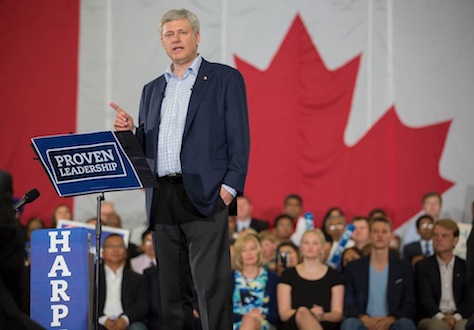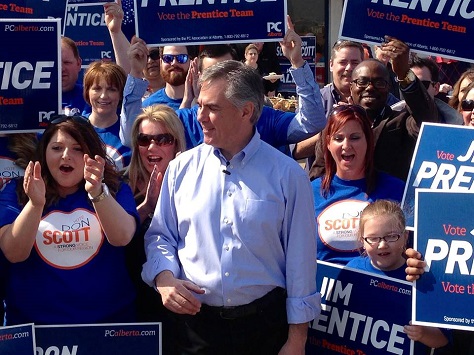 Stephen Harper has a timing problem.
Stephen Harper has a timing problem.![]()
Last week, Canadian officials announced that GDP contracted by 0.2% in May, the fifth consecutive decline in the country’s economic growth. If on September 1, statistics show a further decline for June’s GDP measurements and confirm the earlier 2015 data, Canada will officially be in recession — the generally accepted technical definition amounts to two consecutive quarters of negative GDP growth. Stephen Poloz, the governor of the Bank of Canada, recently cut the benchmark interest rate to 0.5% in July, and he may take further steps to loosen monetary policy if economic conditions continue to deteriorate.
For a prime minister seeking a fourth consecutive term in a general election on October 19, that presents a significant difficulty — and the economy will almost certainly loom large during the campaign’s first debate tonight.
Even if Canada doesn’t technically enter a recession during the election campaign, it will be an unwelcome distraction for a prime minister who in 2011 benefited from the perception that his government’s economic leadership saw Canada through the worst of the US-originated global financial crisis.
Now, both Liberal leader Justin Trudeau and New Democratic Party leader Thomas Mulcair will be able to use the economy’s flagging performance as a weapon against Harper. In particular, Mulcair’s emphasis on creating jobs has boosted the NDP to a (very narrow) first place in polls. In May’s provincial elections in Alberta, Rachel Notley and the Alberta New Democrats rode a wave of voter dissatisfaction to end 44 years of consecutive Tory rule. The outgoing premier, Jim Prentice, only recently returned to politics after a prior stint as a Harper loyalist in federal government, became the first political victim of lower oil prices in energy-rich Alberta.
He might not be the last. Continue reading Will Canada have a recession election?
